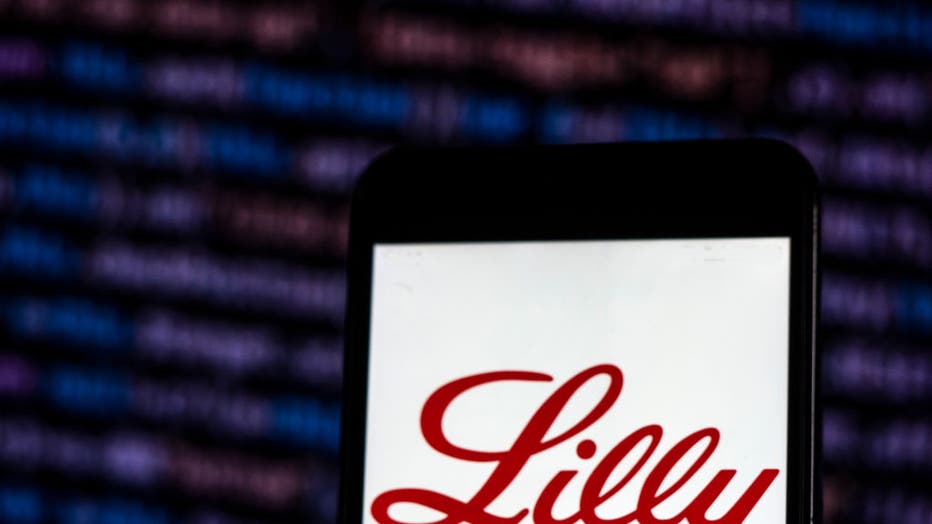Eli Lilly pauses COVID-19 antibody drug trial over potential safety concerns
LOS ANGELES - Eli Lilly and Company said on Tuesday that it has delayed enrollment in clinical trials of its antibody treatment for COVID-19 to “ensure the safety of the patients participating in this study” due to a potential safety concern.
“Safety is of the utmost importance to Lilly. We are aware that, out of an abundance of caution, the ACTIV-3 independent data safety monitoring board (DSMB) has recommended a pause in enrollment,” a company spokesperson wrote in an email. “The trial, evaluating Lilly’s investigational neutralizing antibody as a treatment for COVID-19 in hospitalized patients, is sponsored by the National Institute of Allergy and Infectious Diseases (NIAID), part of the National Institutes of Health (NIH).”

FILE - In this photo illustration, the Eli Lilly and Company, Pharmaceutical company logo seen displayed on a smartphone.
Last week, Eli Lilly asked the U.S. government to allow emergency use of its antibody therapy based on early results from a study that suggested the drug reduced symptoms, viral load, hospitalizations and ER visits for patients with mild or moderate COVID-19.
The company announced partial results of the study last week in a news release, but those results have not yet been published or reviewed by independent scientists.
The Eli Lilly drug is similar to one that President Donald Trump received from Regeneron Pharmaceuticals. The medicines supply concentrated versions of specific antibodies to help the immune system clear the coronavirus that causes COVID-19. They’re typically given as a one-time treatment through an IV.
The news comes just after a late-stage study of Johnson & Johnson’s COVID-19 vaccine candidate was paused while the company investigates whether a study participant’s “unexplained illness” is related to the inoculation.
Johnson & Johnson said in a statement Monday that illnesses, accidents and other so-called adverse events “are an expected part of any clinical study, especially large studies,” but that its physicians and a safety monitoring panel would try to determine what might have caused the illness.
The recent pause is at least the second such hold to occur among several vaccine trials that have reached large-scale final tests in the U.S.Johnson & Johnson declined to reveal any more details about the illness, citing the participant’s privacy.
The Associated Press contributed to this story.


